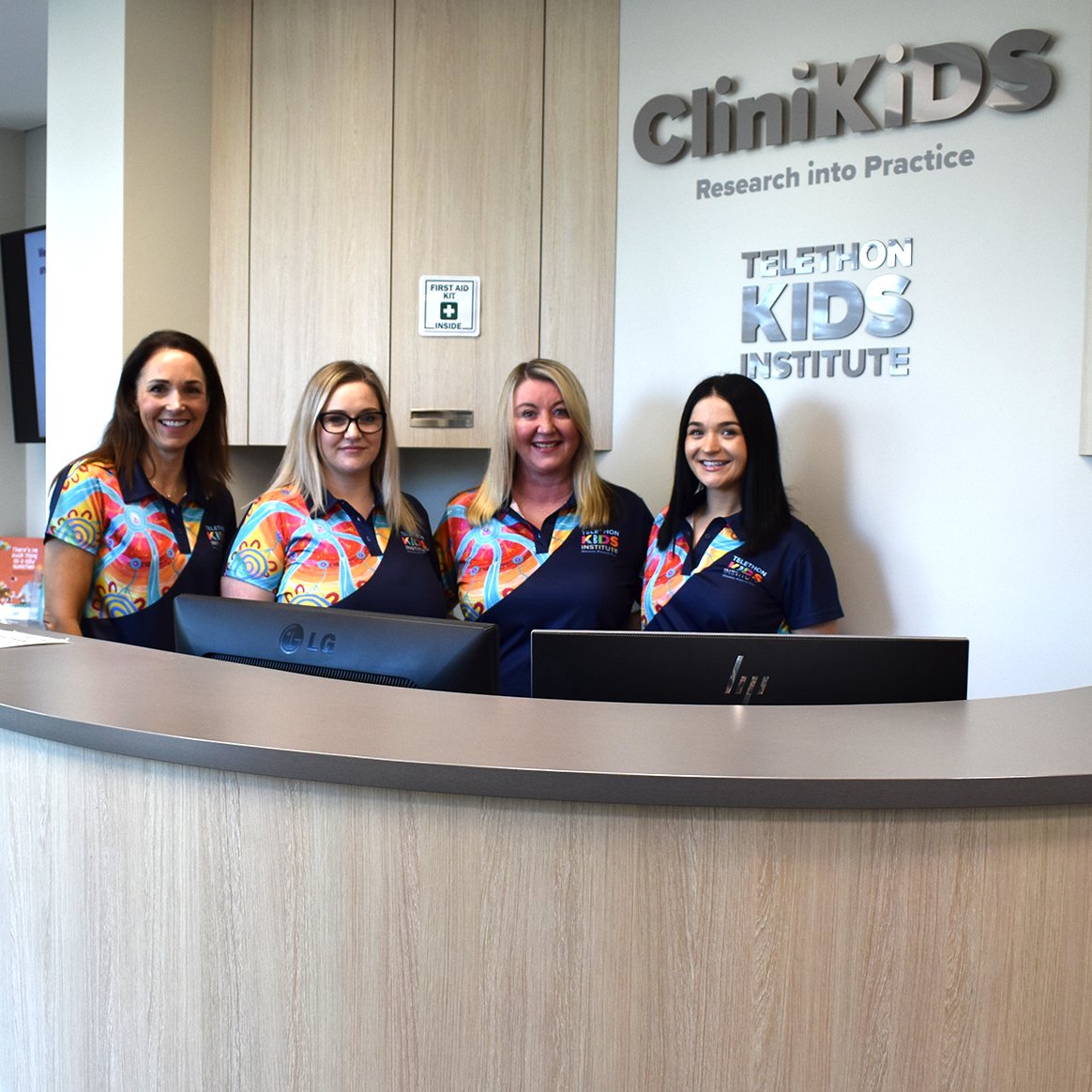Search

News & Events
NDIA backs The Kids Research Institute Australia's program to support babies developing differentlyA world-first program for babies with delays in their social and communication skills has been launched in Western Australia, thanks to support from the National Disability Insurance Agency (NDIA).

News & Events
Autism researcher a finalist for WA's Australian of the YearProfessor Andrew Whitehouse, who has helped transform clinical support for children on the autism spectrum in Australia, is nominated for WA's 2023 Australian of the Year.

News & Events
CliniKids clinicians rise to the COVID-19 challengeThe CliniKids team has reimagined how allied health services for children with autism spectrum disorder or developmental delays are delivered.

News & Events
Meet the Client Support TeamThe Client Support Team at CliniKids has some new faces! Nicki and Amy join our lovely Tracy.
The Autism Register Team are running short, informative workshops at your organisation or at a location close to you. We aim to get your feedback about the new Autism Register, answer your questions and demonstrate the online portal.
Research
Developmental Vitamin D Deficiency in Pregnant Rats Does Not Induce PreeclampsiaPreeclampsia is a pregnancy disorder characterized by hypertension. Epidemiological studies have associated preeclampsia with an increased risk of neurodevelopmental disorders in offspring, such as autism and schizophrenia. Preeclampsia has also been linked with maternal vitamin D deficiency, another candidate risk factor also associated with autism.
Research
Exploring the Experience of Seeking an Autism Diagnosis as an AdultEmerging research suggests that seeking an autism diagnosis as an adult is usually difficult and time-consuming but brings relief once a diagnosis is made. This study explored the experience of the pathway to an autism diagnosis during adulthood for adults living in Australia.
Research
A Survey of Autistic Adults from New Zealand on the Autism Diagnostic Process During Adolescence and AdulthoodThe diagnostic experiences of autistic adults in New Zealand have not been investigated and little is known globally about autistic adults' satisfaction with the autism diagnostic process. This study describes the diagnostic experiences of 70 autistic adults living in New Zealand and explores how these experiences are related to satisfaction during three stages of the diagnostic process. The results show that autistic adults were reasonably satisfied with the early query and diagnostic assessment stages, but were dissatisfied with the post-diagnostic support stage, with significant unmet needs. Dissatisfaction during the post-diagnostic support stage was also related to satisfaction during previous stages and poor coordination of supports. Suggestions are made on how to improve the autism diagnostic pathway for autistic adults in New Zealand.
Research
Parent-reported Early Atypical Development and Age of Diagnosis for Children with Co-occurring Autism and ADHDAutism and attention-deficit/hyperactivity disorder (ADHD) often co-occur. This survey of 288 New Zealand parents of children diagnosed with autism, ADHD, or both conditions, examined the relations between age of diagnosis and early atypical development, the age specialist consultation was needed and types of specialists seen.
Research
Mental health difficulties among trans and gender diverse young people with an autism spectrum disorder (ASD): Findings from Trans PathwaysRecent research highlights an overlap of gender diversity and autism spectrum disorders (ASD); however, data on individuals who are trans and also on the autism spectrum are largely from clinical samples and may not be representative of individuals who are trans with ASD in the general population. In addition, there is scant literature on the mental health of these individuals and their experiences in accessing gender-affirming care.
